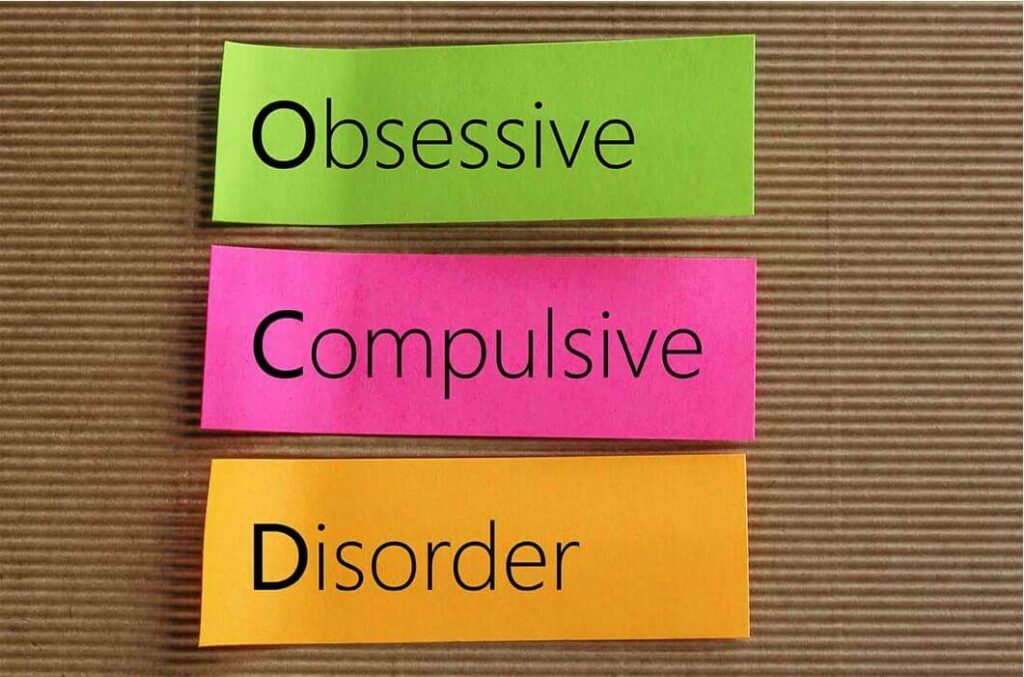If you are living with severe OCD, you know that it can be a challenging condition to manage. The thoughts and compulsions can be relentless and overwhelming. It is important to have a good understanding of the disorder so that you can get the most effective treatment. In this blog post, we will discuss the symptoms of severe OCD, as well as the treatments that are available. We hope that this information will help you manage your condition and live a happier life!
Contents
What Is Severe OCD?
 OCD stands for obsessive-compulsive disorder, which is an anxiety disorder involving persistent intrusive thoughts and repetitive behaviors. It is described as having severe symptoms when those thoughts and behaviors become debilitating, affecting the person’s daily activities.
OCD stands for obsessive-compulsive disorder, which is an anxiety disorder involving persistent intrusive thoughts and repetitive behaviors. It is described as having severe symptoms when those thoughts and behaviors become debilitating, affecting the person’s daily activities.
Severe OCD can be characterized by intrusive thoughts or “obsessions” that cause intense feelings of fear, anxiety, and distress. The term severe is often used to describe the level of intensity, which can make it difficult for people to maintain daily activities. People with severe OCD may experience more frequent and intense obsessions than those who suffer from mild or moderate symptoms.
If you are living with severe OCD, you may experience compulsions or behaviors that are performed in an effort to reduce the anxiety caused by obsessions.
What Are Some Examples?
It is not easy to define the symptoms of severe OCD because everyone experiences it differently. Common examples of obsessions and compulsions associated with severe OCD can include:
Fear of contamination or germs
The fear of germs in severe OCD can cause a person to become overwhelmed with thoughts of contamination and germs. This can cause them to excessively wash their hands or clean surfaces, or even avoid touching certain things. For example, they may avoid shaking hands with people, touching doorknobs, or even leaving the house.
Fear of harm or danger
This type of obsession may lead to compulsions such as needing to check locks multiple times before leaving the house or re-reading an email several times to make sure it is worded correctly. It is often accompanied by feelings of panic and anxiety.
Intrusive thoughts or images
With severe OCD, a person may experience intrusive thoughts or images that can be disturbing and worrisome. These could include inappropriate sexual thoughts or worries about forgetting to do something important. It is common to want to push these thoughts away, but this can actually make the symptoms worse.
Perfectionism
People with severe OCD may become stuck in a cycle of needing things to be perfect or becoming overwhelmed when faced with any kind of uncertainty. This can cause difficulty completing tasks and lead to feelings of shame and guilt.
Avoidance
Finally, someone with severe OCD may also develop habits of avoidance, such as avoiding certain people or places that bring up anxious feelings. This can lead to isolation and a decrease in quality of life. For example, avoiding taking public transportation or going to certain restaurants due to fear and anxiety.
Severe OCD can be a debilitating and isolating condition, but it is important to remember that there are treatment options available.
What Are The Common Symptoms Of Severe OCD?
 Severe OCD is a severe form of Obsessive Compulsive Disorder and has the same symptoms as other forms of OCD. Common symptoms of OCD can include:
Severe OCD is a severe form of Obsessive Compulsive Disorder and has the same symptoms as other forms of OCD. Common symptoms of OCD can include:
- Intrusive, unwanted thoughts and images
- Repetitive behaviors (excessive hand-washing and cleaning, checking things over and over)
- Avoiding certain places or situations that trigger your anxiety
- Constant worries about the safety of yourself and others
- Difficulty controlling intrusive thoughts
This condition may also involve additional symptoms such as depression, anxiety, and difficulty concentrating. The severity of the symptoms can range from mild to severe. And the moment they are severe it is important to seek help from a medical professional.
What Causes Severe OCD?
The exact cause of OCD is unknown but it is believed that several factors may contribute to it including:
- Genetics – a family history of mental illness can increase the risk of developing OCD
- Biological Factors – abnormalities in certain brain functions may be involved
- Environmental Factors – stressful events or situations can induce OCD symptoms
These are just the common three that are known to play a role in severe OCD. There could be other possible risk factors that can increase the risk of developing this condition. These include:
- Trauma – those who have endured a traumatic experience may be more prone to developing severe OCD
- Personality – people with certain personality traits are more vulnerable to developing the disorder
- Substance Abuse – addiction to drugs and alcohol can increase the risk of this condition.
- Low self-esteem or insecurity – individuals with low self-esteem or who feel insecure may be more prone to developing OCD.
These are just some of the common risk factors which can lead to severe OCD. It is important to note that not everyone who experiences these risk factors will develop OCD and many people with OCD do not meet any of the above criteria. Therefore, you should speak to a medical professional if you are concerned about yourself or someone else.
How Is It Diagnosed?
The diagnosis is based on the presence of obsessions and compulsions that cause distress, take up a significant amount of time, and significantly interfere with daily functioning. Some of the methods for diagnosis are:
- Mental health history evaluation
- Physical exams
- Lab tests
- Psychological assessment
Each method can help the clinician better understand the condition and come up with an appropriate treatment plan. Additionally, the diagnostic criteria for severe OCD are outlined in the Diagnostic and Statistical Manual of Mental Disorders (DSM-5).
Overall, an accurate diagnosis is key in order to identify the type and severity of OCD, allowing for a more targeted treatment plan. So, do not hesitate to seek professional help if you have any of the symptoms mentioned above.
How Can You Manage Severe OCD?
 Living with severe OCD can be a difficult and isolating experience. It is important to keep in mind that anxiety is an issue that should not be ignored, no matter how overwhelming it may seem. Here are some of the common ways to manage and cope with severe OCD:
Living with severe OCD can be a difficult and isolating experience. It is important to keep in mind that anxiety is an issue that should not be ignored, no matter how overwhelming it may seem. Here are some of the common ways to manage and cope with severe OCD:
Cognitive Behavioral Therapy (CBT)
CBT is a type of psychotherapy that helps people to identify unhelpful patterns of thinking and behavior and replace them with healthier ones. It can be used to address the obsessions and compulsions associated with OCD, as well as help individuals develop better problem-solving skills.
Exposure and Response Prevention (ERP)
ERP is an evidence-based treatment for OCD, which involves gradually exposing the individual to their fears and teaching them how to react differently when confronted with them. This approach helps individuals learn to tolerate anxiety without acting on compulsions or resorting to avoidance strategies.
Medication
Medication is a common treatment option for severe OCD. Selective serotonin reuptake inhibitors (SSRIs) are commonly prescribed to help reduce symptoms of OCD by increasing levels of serotonin, a neurotransmitter that helps regulate mood.
Mindfulness and Relaxation Techniques
Mindfulness and relaxation exercises can be helpful in managing the overwhelming emotions associated with OCD. These techniques involve taking time to focus on the present moment, engaging in deep breathing and body scanning exercises, and learning to monitor thoughts without getting caught up in them.
Self-Care Strategies
Self-care should be an essential part of managing severe OCD. It is important to prioritize restful sleep, regular exercise, balanced nutrition, and social activities to stay healthy. It is also important to create a safe space where the individual can relax away from triggers and practice self-care without feeling overwhelmed.
Support
Having access to support from family members, friends, or mental health professionals can make a world of difference in managing severe OCD. A professional therapist can provide reassurance, guidance, and resources for effective treatment and management.
Severe OCD can be a difficult experience to manage, but with the right combination of treatments and self-care strategies, it is possible to improve symptoms and live a more fulfilling life. If you or someone you know is struggling with this condition, it is important to seek help from a qualified mental health professional. With the right resources, it is possible to manage and even overcome symptoms of severe OCD.
Conclusion
In conclusion, severe OCD may seem like an overwhelming and even terrifying condition, but it doesn’t have to be. With the right treatment plan, lifestyle changes, and supportive environment, you can manage your symptoms and live a happy life. Don’t let OCD stop you from achieving your goals and living your dreams!
Remember that no matter how severe your OCD may seem, there is hope and help available. Seek professional help from a psychologist, psychiatrist, or therapist and develop a treatment plan that works for you.
For more information and guidance, please contact OCDMantra. OCD is a mental health disorder characterized by obsessions and compulsions. If you have any queries regarding OCD treatment, ERP therapy experienced therapists at OCDMantra can help: Book a trial OCD therapy session


